

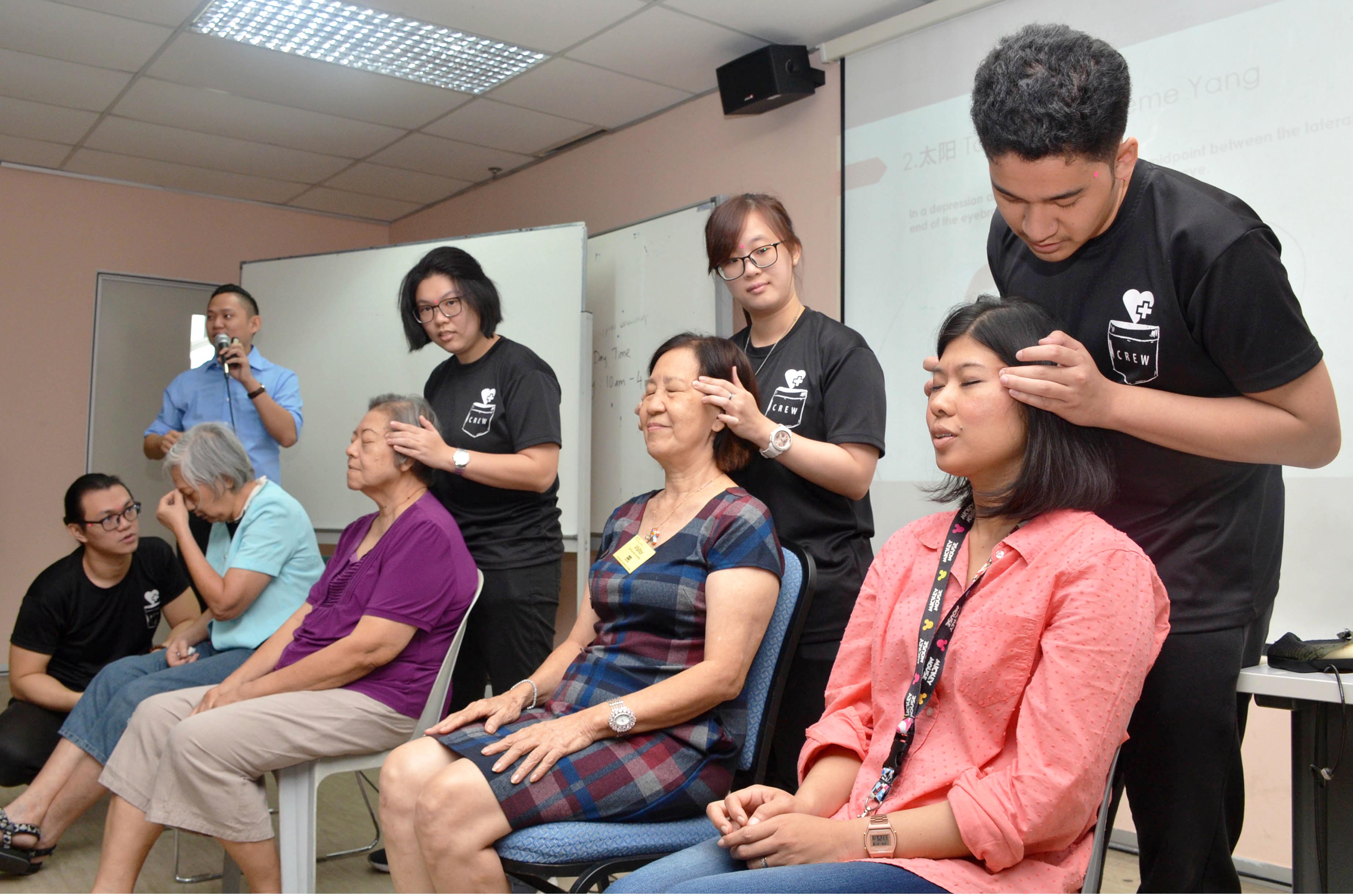
TCM students performing one of the many acupressure, 太阳‘Tai Yang’ on participants
UTAR’s Faculty of Medicine and Health Sciences (FMHS) and Centre for Research in Traditional Chinese Medicine conducted a workshop on “Sleep Disorders of Institutionalised Elderly and Healthy Aging” at UTAR Sungai Long Campus on 8 March 2019. It saw the participation of about 50 participants.
The objectives of the event were to provide an overview of the results of the UTARSF study on the sleep disorder among institutionalised elderly from the old folks home within Klang Valley and to promote awareness of the importance of sleep quality for healthy ageing as well as introducing food, supplements and relaxation exercise for better sleep. Apart from that, the workshop also aimed to introduce a tool to evaluate sleep quality among the participants.
Present at the workshop were Sunway Medical Centre Dietitian Michelle Gan Pei Chee, FMHS Deputy Dean for R&D and Postgraduate Programmes Prof Dr Yap Sook Fan, FMHS lecturer Go Pei Heng, lecturers, students and the public.
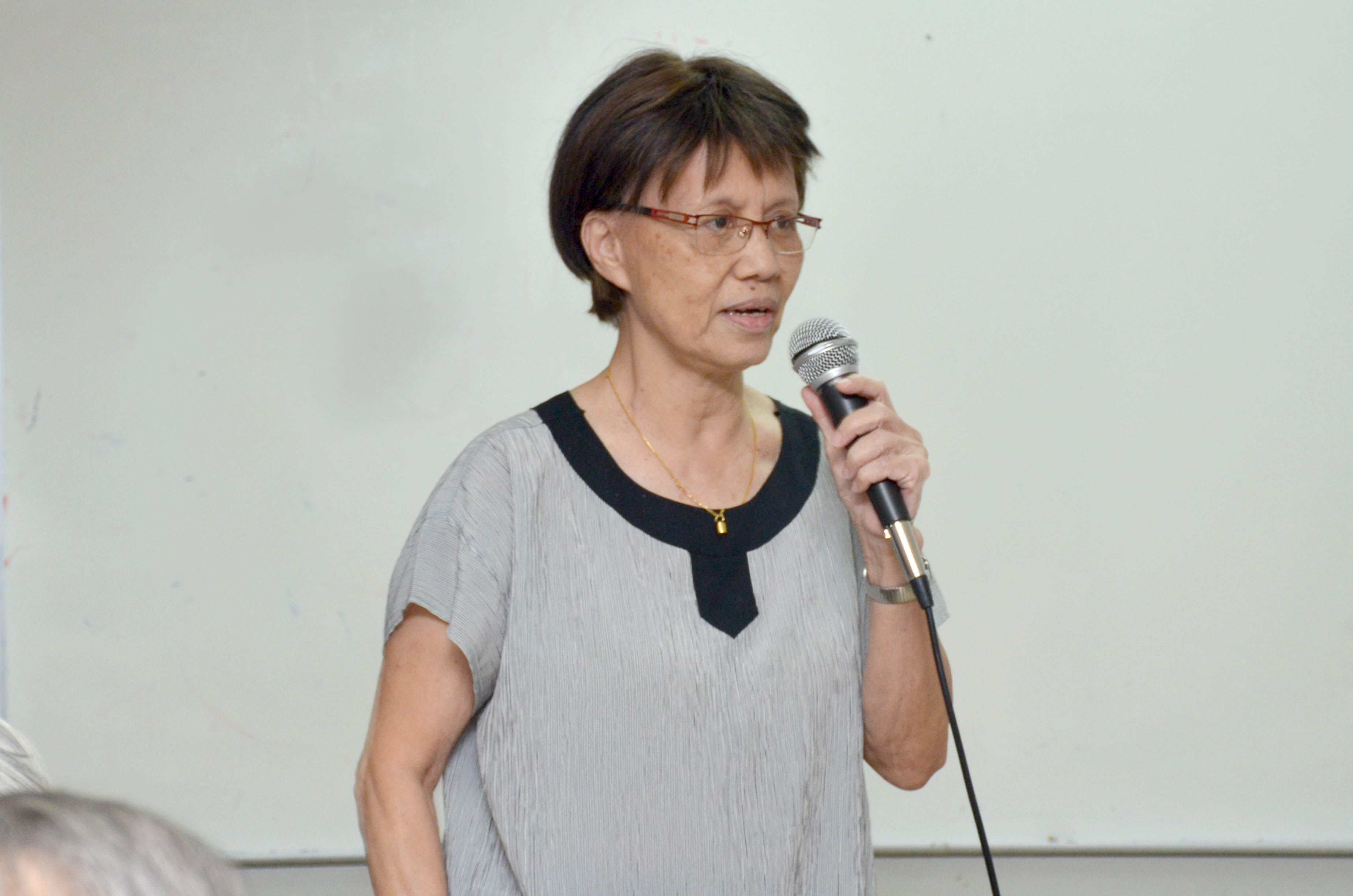
Prof Yap explaining to the participants about sleep hygiene
Prof Yap spoke about the general review of sleep which touches on topics such as sleep-wake cycle, stages of sleep, sleep architecture, components of good sleep, sleep in ageing adults, primary sleep disorders and sleep hygiene interventions. She said, “The components of a good sleep need adequate sleep time, restfulness, restorative and proper architecture. It is important to have both sufficient and quality sleep because it can promote physical and emotional health as well as improving one’s memory and cognitive function.”
Prof Yap added, “Examples of primary sleep disorders are insomnia, sleep breathing disorders and sleep movement disorders. One can create a stable sleep pattern through a regular sleep-wake schedule and refrain from taking naps during the day. We also need to encourage a non-disruptive sleep environment such as keeping the room dark and minimising noise to reduce sleep tension.”
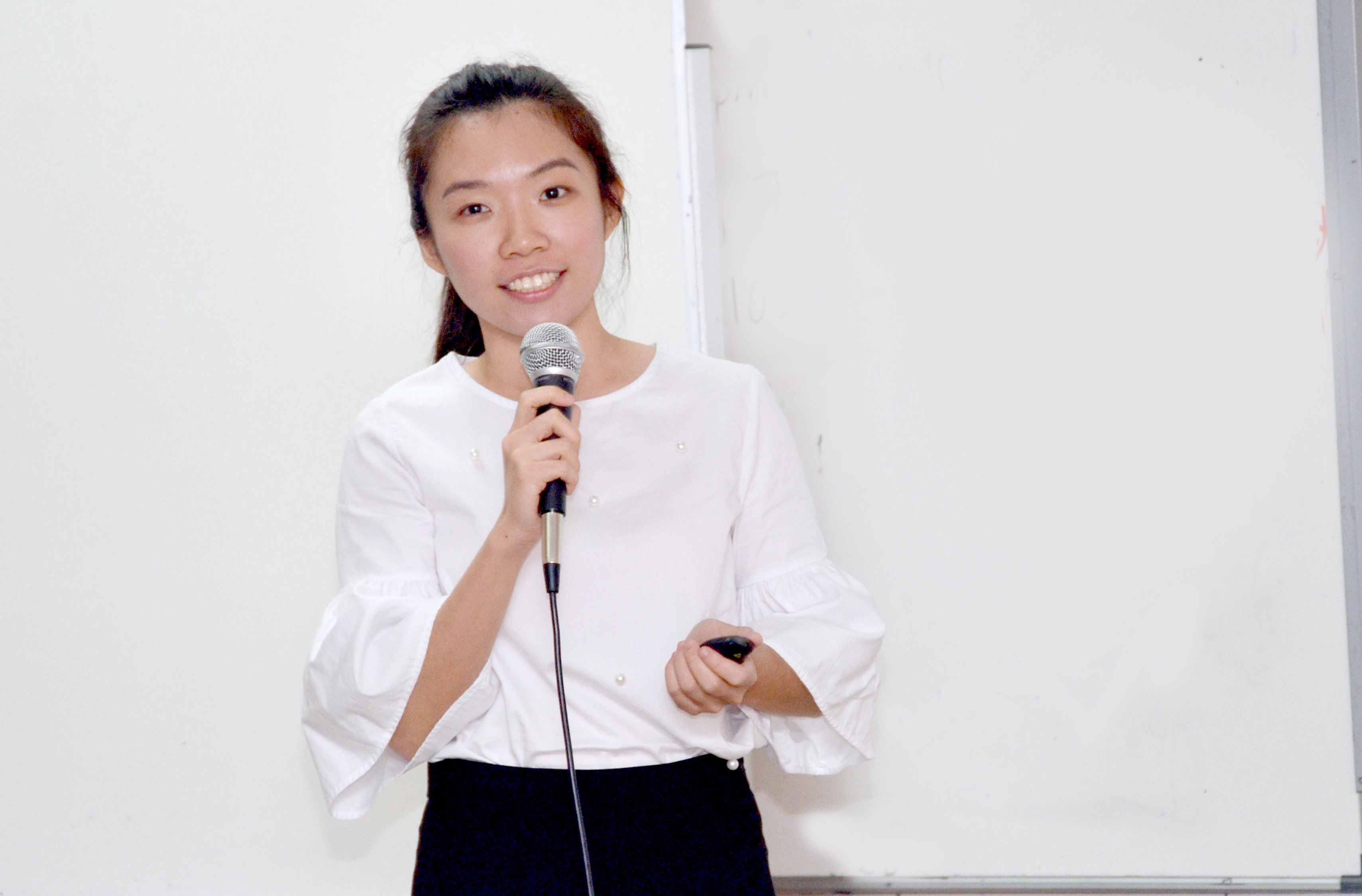
Michelle Gan presenting her talk on “Food and Supplements for Sleep”
Michelle Gan spoke about sleep and ageing, common causes of sleep problems in ageing and nutrients for better sleep. “There are many underlying medical problems that cause sleep problems in ageing such as heart and lung conditions which affect breathing, gastroesophageal reflux disease, osteoarthritis, urinary problems, depression and anxiety as well as neurodegenerative disorders and medication side effects,” said Michelle Gan.
She added, “Nutrients which promote better sleep include Tryptophan, Magnesium, Calcium and Vitamin B6. Tryptophan is a type of essential amino acid and has a better effect when eaten with carbohydrate-rich food while Magnesium is one of the seven essential macro-minerals which our body does not produce and it helps in promoting sleep, stress reduction, bone health as well as cardiovascular health. Calcium helps the brain to use the amino acid tryptophan to manufacture the sleep-inducing hormone melatonin while Vitamin B6 helps in converting the amino acid tryptophan into serotonin which regulates the level of melatonin.”
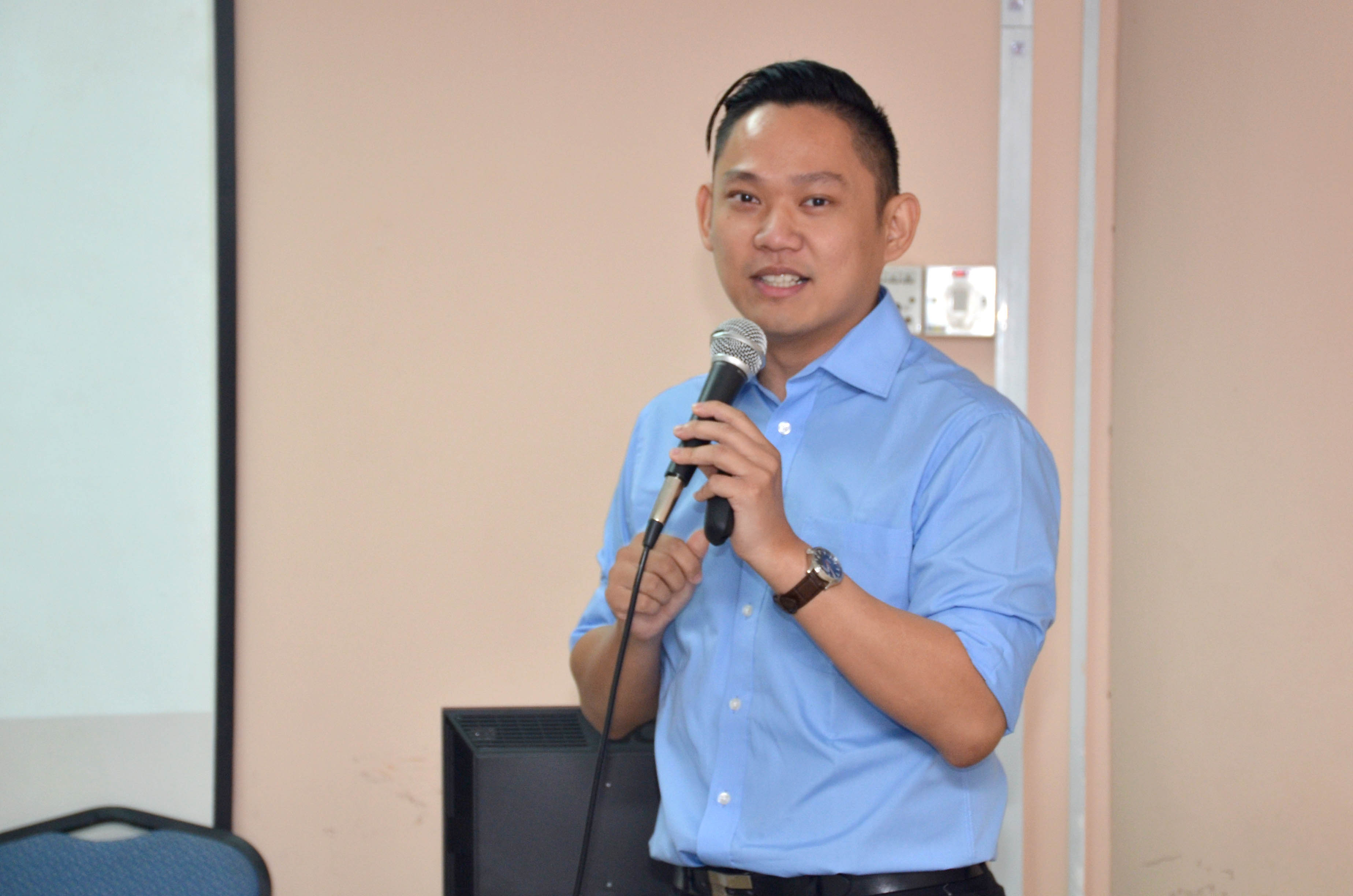
Go delivering his talk on “Acupressure”
Go said, “Acupressure is an Asian Bodywork Therapy that was developed over 5,000 years ago and this therapy relies on finger placement and pressure along the pressure points on the body. The points are believed to be arranged along the meridian channels. These areas are then stimulated to release tension while increasing the blood flow which corrects the imbalances and blockages of the flow of vital energies through our bodies. Acupressure can be used to relieve common pain such as headaches, neck and back pain, insomnia, nausea, fatigue, mental and physical stress as well as weight loss.”
Go and Traditional Chinese Medicine students then demonstrated the acupressure points such as 印堂‘Yin Tang’,太阳‘Tai Yang’,四神聪 ‘Si Chen Cong’, 安眠‘An Mian’,风池 ‘Feng Chi’, 神门 ‘Shen Men’, 三阴交‘San Yin Jiao’, 失眠‘Shi Mian’,耳廓‘Auricle’ and 脚底反射区‘Foot Reflexology’.
The workshop was followed by group activities to assess sleep quality using the Pittsburgh Sleep Quality Index (PQSI) tool, presentation of group discussion and demonstration of simple exercises.
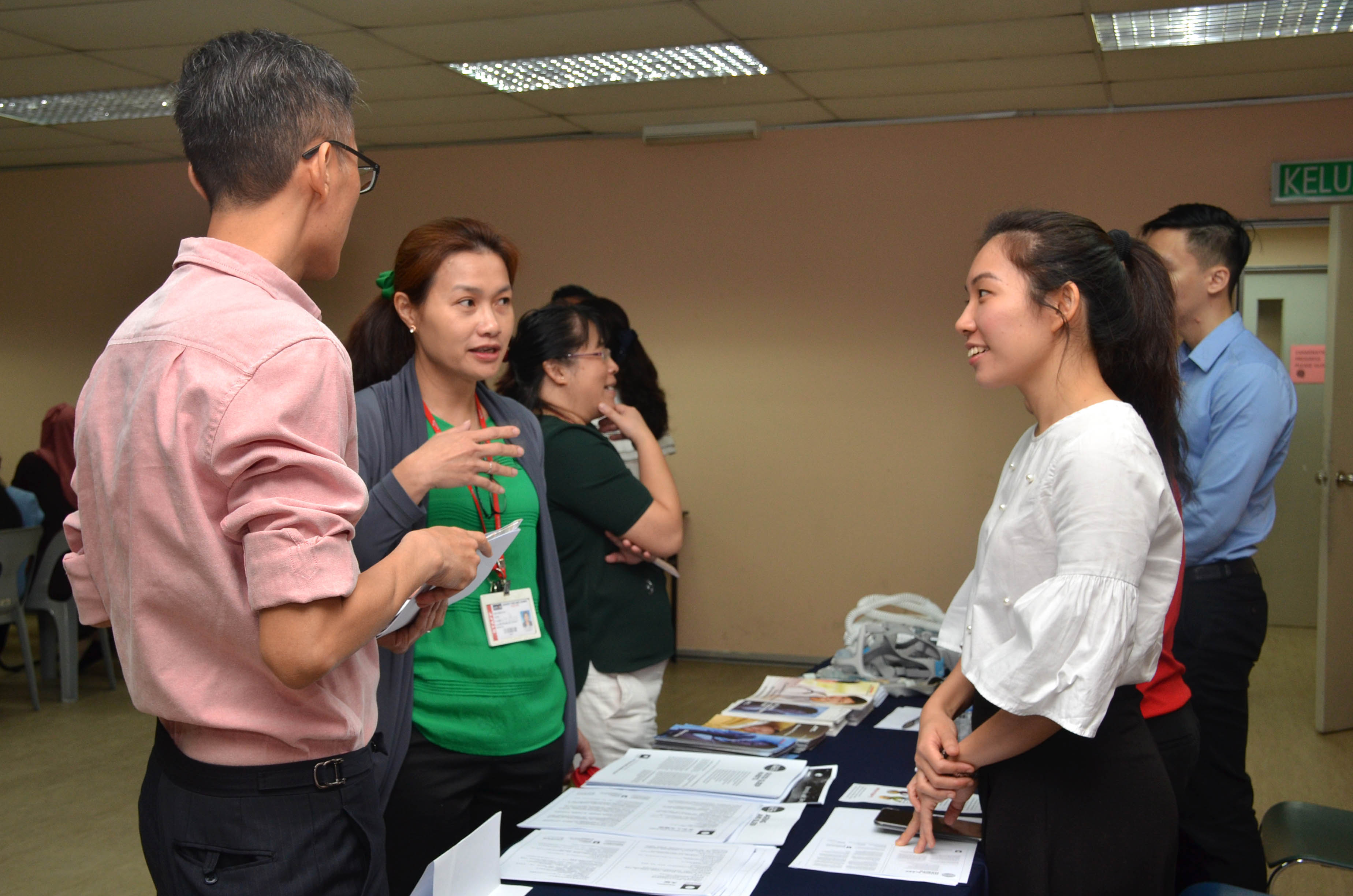
Sunway Medical Centre booth provided information on sleep disorders
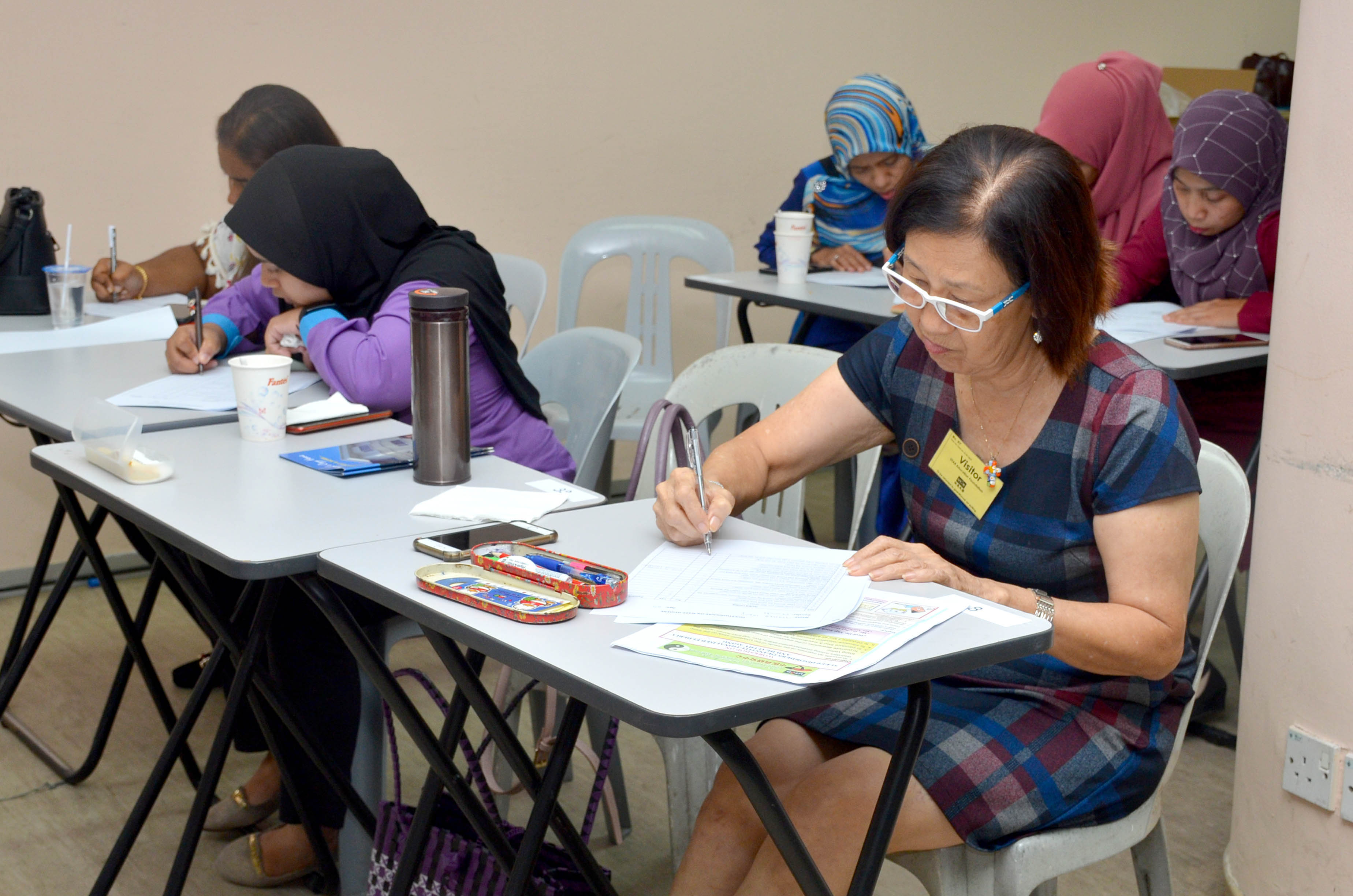
Participants filling up the PSQI questionnaire
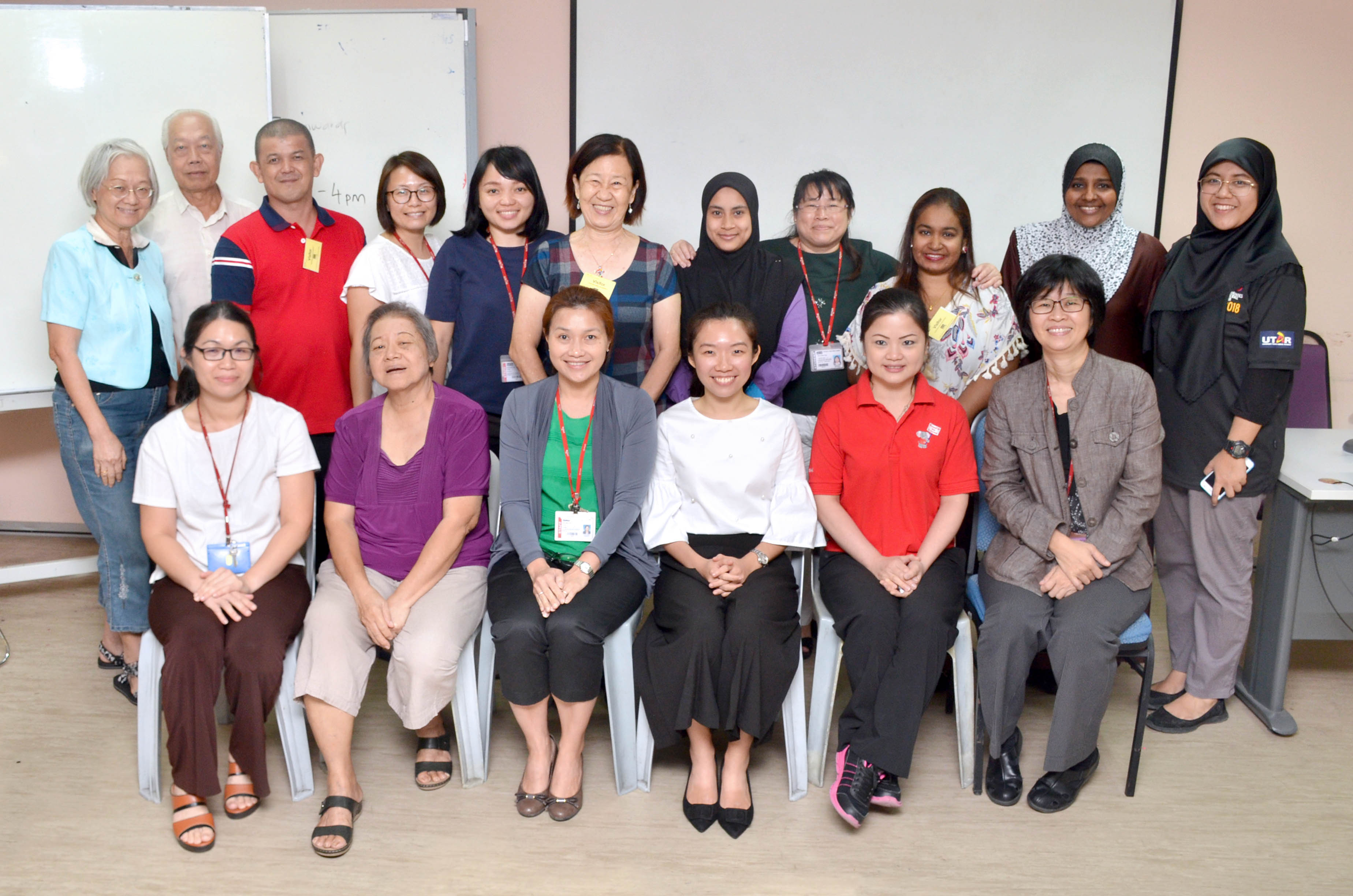
Michelle Gan (third from right) with the participants and FMHS lecturers
![]()
© 2019 UNIVERSITI TUNKU ABDUL RAHMAN DU012(A).
Wholly owned by UTAR Education Foundation Co. No. 578227-M LEGAL STATEMENT TERM OF USAGE PRIVACY NOTICE